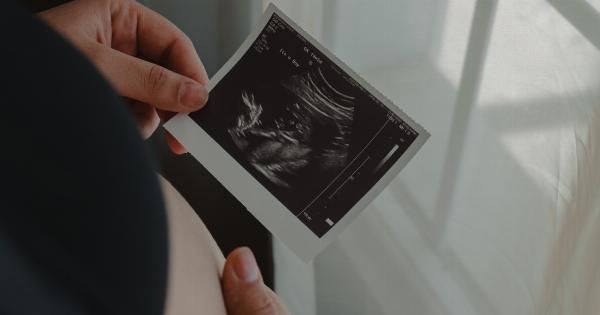Pregnancy is a crucial period during which the health and development of the baby largely depend on the choices and habits of the mother. One such habit that can have severe consequences is the consumption of alcohol.
It is widely known that alcohol consumption can lead to various health issues, but its impact on pregnancy goes beyond just physical consequences for the mother alone. In this article, we will delve into the effects of alcohol on pregnancy and explore the potential risks it poses to both the mother and the developing baby.
Teratogenic Effects of Alcohol
Alcohol is classified as a teratogen, meaning it has the potential to interfere with the normal development of an embryo or fetus. When a pregnant woman consumes alcohol, it passes through the placenta and reaches the developing baby.
Since the baby’s liver is still underdeveloped, it is unable to efficiently metabolize alcohol, leading to higher concentrations in their blood and tissues compared to the mother.
The effects of alcohol on fetal development can be particularly harmful during the early stages of pregnancy when crucial organ systems are forming.
Excessive alcohol consumption during this critical period can result in a condition known as fetal alcohol syndrome (FAS), which is characterized by various physical and cognitive abnormalities.
Physical Effects of Alcohol on the Baby
Alcohol consumption during pregnancy can lead to a range of physical abnormalities in the baby, including facial deformities such as a thin upper lip, a smooth philtrum (the groove between the nose and upper lip), and small eye openings.
These facial features are often characteristic signs of FAS.
Furthermore, alcohol can also affect the baby’s growth and cause intrauterine growth restriction (IUGR). Babies with IUGR may have low birth weight, which can be associated with long-term health complications.
They may also experience developmental delays and have an increased risk of developing chronic conditions later in life.
Cognitive and Behavioral Effects of Alcohol on the Baby
The effects of alcohol on the developing baby are not limited to physical abnormalities. Alcohol exposure during pregnancy can also result in cognitive and behavioral problems.
Babies born with FAS may exhibit learning difficulties, intellectual disabilities, poor impulse control, and memory issues. These challenges can persist into adulthood and impact the individual’s overall quality of life.
Additionally, alcohol can affect the development of the baby’s central nervous system, leading to neurological issues such as poor coordination, balance problems, and speech and language delays.
These problems may further contribute to learning difficulties and behavioral challenges as the child grows older.
Risks and Guidelines for Alcohol Consumption During Pregnancy
Given the severe consequences associated with alcohol consumption during pregnancy, it is crucial for expectant mothers to avoid alcohol entirely. No amount of alcohol has been proven safe for the developing baby, so abstinence is highly recommended.
It is important to note that the effects of alcohol are not limited to heavy or frequent drinking. Even moderate or occasional alcohol consumption can pose risks to the baby.
Therefore, it is best to err on the side of caution and stay away from alcohol throughout the entire pregnancy.
If you are struggling to abstain from alcohol during pregnancy, it is important to seek support from healthcare professionals, friends, and family members.
There are various resources available to help pregnant women overcome alcohol addiction and make healthier choices for themselves and their baby.
Conclusion
Alcohol consumption during pregnancy can have serious and long-lasting effects on both the mother and the developing baby. From physical deformities to cognitive and behavioral issues, the risks associated with alcohol are significant.
It is crucial for expectant mothers to prioritize their baby’s health and well-being by completely avoiding alcohol throughout pregnancy. By making this choice, women can ensure optimal development for their baby and pave the way for a healthy and prosperous future.






























